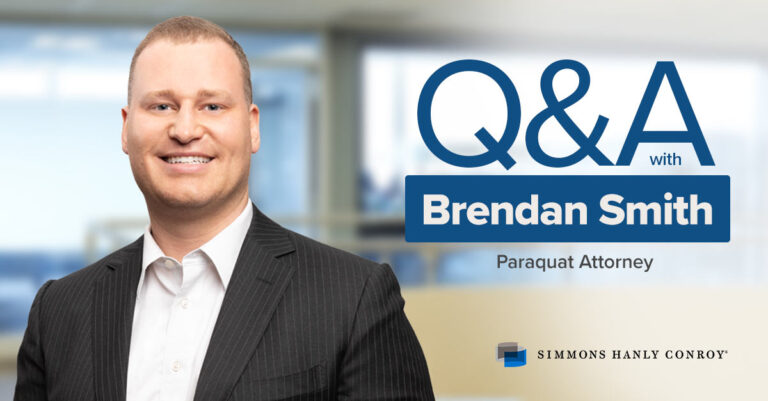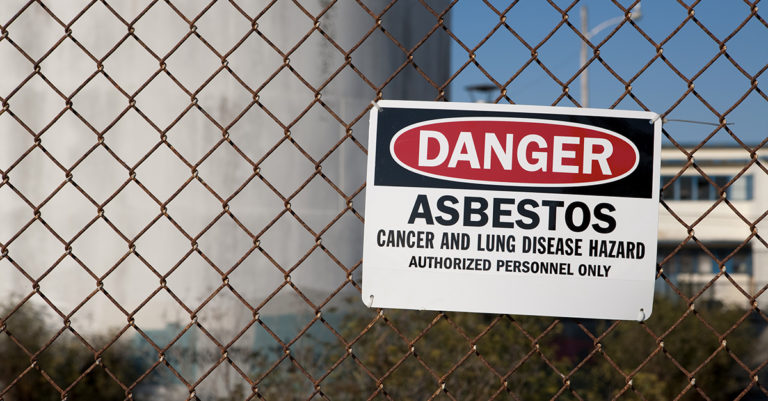Shell Oil Co. says it will appeal what is believed to be the largest verdict ever in Madison County, a $34.1 million judgment on behalf of a roofing worker who contracted an asbestos-related cancer while working at the Wood River refinery decades ago.
The verdict late Friday night sends a message to American industry that it cannot place workers in unsafe conditions as if they are “guinea pigs,” said plaintiff’s attorney Randall Bono of Bethalto.
Bono and co-counsel Bill Fahey of Chicago represented James Hutcheson, 64, of Missouri, who did periodic contract jobs at Shell from 1956 to 1966. He was one of hundreds of workers who would come into the Wood River plant during shutdowns to repair or install new refining units.
During the work, Hutcheson was exposed to insulation dust containing asbestos fibers, which prompted a condition known as mesothelioma, a painful cancer that eventually led to the loss of a lung, most of his diaphragm and removal of the lining around his lungs and heart. He has a 70 percent to 90 percent chance that the cancer will return, doctors have said.
Bono asked one of the doctors during the two-week trial what kind of pain one suffers with the cancer, on a scale of 1 to 10.
“He said, ‘It’s off the scale,'” Bono said Saturday.
Kitty Borah, a spokeswoman for Shell, issued a company statement Saturday morning that read:
“Shell staunchly believes the verdict is not supported by the facts or law and will appeal if judgment is entered against it. The court severely limited Shell’s ability to defend itself and declined to allow the company to offer evidence that the plaintiff’s disease was not related to the very short period of time he worked at the (plant). Nor was the company permitted to demonstrate its strong historic commitment to worker safety.
“Shell firmly believes the jury should have been entitled to consider this highly pertinent information. We are confident the jury would have reached a different result if they had been permitted to hear a complete presentation of the facts. Shell expects vindication on appeal.
Shell suffered a major setback during the trial when Associate Judge Lewis Mallott agreed with the plaintiff lawyers that Shell had hidden important evidence regarding its knowledge of asbestos hazards that should have been turned over to the plaintiff’s lawyers before trial. As a result, Shell’s case pleadings were struck and several defense witnesses were not allowed to testify.
Bono said plaintiff investigators learned that Shell had 106 boxes of documents in the basement of its Houston headquarters that it had not revealed to the plaintiff. Another 40 to 60 boxes contained information on which Shell claimed a privilege.
“Every document that we eventually got admitted as evidence on the issue of liability was (initially) hidden from us,” Bono said.
Among the evidence in Shell’s possession was a 1937 document from the American Petroleum Institute warning about the hazards of insulation dust, hazards that Shell never warned its workers about, Bono said.
Others evidence showed that Shell knew in 1945 that asbestos could cause cancer, Bono said.
A Shell industrial hygienist, who joined the company in 1952, was questioned on the witness stand about why nothing was said to workers at that time.
“We didn’t want to create more stress on the already stressful lives of American citizens,” the hygienist responded.
The 1937 American Petroleum document became the basis for all the asbestos safety guidelines adopted by the Occupational Health and Safety Administration in 1972, Bono said.
After deliberating about five hours, the Madison County Circuit Court jury returned a verdict of $9.1 million for compensatory and medical damages and $25 million in punitive damages.
“Shell knew the hazards and they did nothing,” Bono said. “That’s why they were punished.”
* Please note that recovery results vary per client. The recovery amounts in each case reflect the specific facts of that case. Further, recovery amounts in past cases are not a guarantee of future results.




